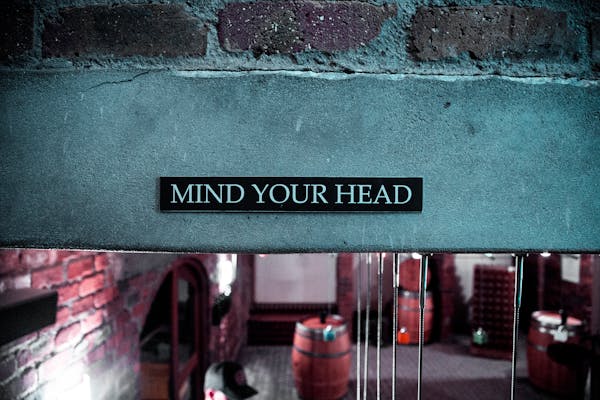
Table of Contents
Mindfulness: Gateway to Life and Business SUCCESS
Within our fast-moving modern world, the word ‘mindfulness’ emerged to become a very transformational practice that would one way or another assist greatly towards being a success in our personal and professional lives.
But what is mindfulness, and why has it been recently considered one of the most important ingredients in a recipe for success? This blog and content explain what mindfulness means, the benefits, and how mindfulness could be incorporated into your daily life, achieving overall wellness, and thus success.
Understanding Mindfulness
Definition and History
Mindfulnes is about living moment to moment, with complete awareness of thoughts, feelings, or physical sensations, without judgment. There will be an observation process for every mental and emotional state, which gets treated with an open and acceptance-allowing attitude.
This is an ancient practice developed in Buddhist traditions and has since developed into one of the most acknowledged practices in contemporary settings. Its principles are now applied to several secular practices in order to foster mental health and well-being.
The historical roots of mindfulness are found in Buddhist meditation and knowledge traditions. Over time, it eventually takes form and becomes prevalent within Western psychological and health approaches.
However, the modern-day concept and close practice of mindfulness can be attributed to Jon Kabat-Zinn, who introduced the concept of Mindfulness-Based Stress Reduction in the late 1970s.
This secular approach opened up the concept and practice of mindfulness to a wider array of individuals and confirmed that mindfulness is alive beyond spiritual or religious contexts.
Core Principles of Mindfulness
Presence: The very essence of mindfulnes revolves around being fully present in the current moment. This simply means that one directs his or her attention toward the present moment and not to the past or the future.
It is through this anchorage in the present that you will have the ability to undergo life with much authenticity while ridding your mind of distractions that often dispel meaningful experiences.
Attention: an increased sensitivity to internal and external experiences. Being mindful implies paying attention to thoughts, emotions, and activities present in one’s body—an attitude of awareness without judgment.
Applying mindfulnes practices increases that quality of attention to habituated patterns and mind–body response and insight into how they influence—and in turn are influenced by—well-being.
Mindfulnes maintains a non-judgmental attitude towards experiences. Here, you accept your thoughts and feelings just as they are, not labeling them good or bad.
Such a non-judgmental attitude fosters self-compassion and helps you decrease self-reproach to such a degree that at present, you can have a more balanced and total acceptance of yourself and experiences.
Benefits of Mindfulness to Personal Success
Greater Emotional Intelligence
Raising emotional intelligence through mindfulness is an increase in potential for self-actualization regarding the recognition and regulation of emotions and insight into one’s personal emotional response, and learning how to manage those emotions in a more effective manner.
With the increasing level of emotional awareness, one is able to properly empathize with others, so proper relationships are sustained and a social environment is nursed which is supportive and comfortable.
For instance, in some challenging moment, mindfulness allows one to step back from an event, focusing on one’s emotional response to an occurrence without getting carried away by that feeling.
Being aware allows one to think and act constructively, rather than reactively, or even defensively. The result is much healthier relationships and a more robust sense of emotional resilience.


Improved Focus and Concentration
Modern life is full of distractions and it is tough to pay attention to one thing. Mindfulnes practices can overcome this by training the brain to stay focused on one thing.
Focused attention meditation shows you how to focus and stay attentive to one thing. This will be on just one breathing, an object, or even one thought.
Regular mindfulnes practice can help increase one’s focus by drastically eliminating the potential to get distracted by either external stimuli or internal chatter.
By improving concentration and helping one manage a focus, one is able to perform their duties with increased efficiency and effectiveness, which in turn leads to increased productivity at both individual and professional levels.
Better Stress Management
Stress is among the biggest obstacles to personal achievement and overall human well-being. Whereas it is true, stress is very widespread at this particular moment, mindfulness now has the proper instruments for coping with and managing it.
Mindful breathing, body scan meditation, and simple mindful observation will possess the potential to switch on a relaxation response inside of the body and, in fact, calm physiological and psychological effects related to stress.
It helps an individual face circumstances that bring about stress with a calm and composed attitude. Developing this mindful attitude enables one to handle reactions to stressful situations more effectively, reduce feelings of being overwhelmed, and adopt healthier coping strategies.
This active approach toward handling stress leads to a much more balanced and resilient way of dealing with life’s challenges.
Developing Healthy Relationships
Mindfulnes develops better and more fulfilling relationships. You will listen more, respond with empathy, and communicate more appropriately. Therefore, mindfulness regards the development of a better understanding and closer association in relations, both personal and professional.
For example, during an interaction, being mindful allows you to stay in the moment and be fully present in the act, thereby articulating what is thoughtful, instead of reacting impulsively.
This considerate way establishes communication that is open and candid, in turn bringing down conflict and the quality of relations improving.
Mindfulness Exercises in Personal Development
Everyday Mindfulnes Activities
The most profound effect on your personal growth comes from bringing mindfulness into your day-to-day activities. Simple forms of mindfulnes, such as mindful breathing exercises or brief meditations, can be used to anchor you in the present and throughout the day.
Having a daily mindfulness routine gives one a structured way of bringing mindfulness into life, and the consistency achieved brings about long-term developed effects.
Even a little bit of mindfulness can go a long way if practiced for a small duration of time every day. You may begin your day with a short meditation where you train your mind to focus on your breath and identify an intention for the day.
Included in activities you may do is to be with present experiences and current emotions through daily practices, which allow you to unwind at night and prepare for the rejuvenation that is sleep.
Mindful reflection and journaling are great practices for personal growth and self-awareness. Allowing the time to really reflect on experiences and feelings puts you in a position to look at your goal, the challenges you face, and your general personal development with a mindful eye.
Journaling provides a structured format for recording your thoughts, tracking progress, and setting intentions for further development.
An example would be journaling to reflect on your response to certain situations, search for the patterns in your behavior, and to set your goals. In these reflective practices lie the value, priorities, and aspirations that clearly pave your way toward improvement.
Mindfulness in Activities of Daily Living
Mindfulnes applies not only during formal meditations but also occurs within everyday activities. With mindfulness, in your everyday activities—whether eating, walking, or driving—you will become present and fully immersed in what you are doing.
Cultivating mindful in everyday activities allows an individual to appreciate the everyday simple things in life and to experience tranquility and contentment.
For instance, when practicing mindful eating, one really pays attention to the flavors, textures, and sensations that it brought after consumption of a certain kind of food. Much enjoyment during meals may result from such a mindful eating approach.
At the same time, it provides a base supporting healthier eating habits and improved digestion. Mindful walking makes a person focus on the sensation of each step, the environment around him or her, and makes a person feel connected with the general space.


Effect of Mindfulness on Professional Success
Better Productivity and Efficiency
Productivity and efficiency can be positively affected at a very high level due to mindfulness when working. By improving focus and concentration, mindfulne can make one complete any work better and with better attention to detail.
With such increased awareness, it allows one to prioritize tasks, manage time effectively, and avoid the pitfalls of falling into procrastination.
Mindfulnes practices improve productivity by having clear intentions and managing distractions. For example, such brief resets of focus during the working day can help maintain high performance.
When one incorporates mindfulness in working routine, they are able to handle tasks with increased efficiency and effectiveness.
Better Decision-Making
Mindfulness makes a person’s thinking clear and aids in better decision-making by inculcating a peaceful and objective mindset. In mindful practice, what is trained is the mind’s ability to observe situations without being swayed by exaggerated thoughts or personal biases.
In fact, it creates an objective mindset that provides one with the chance to take time over options and make a decision based on long-term goals and values.
For example, during a challenging decision, mindfulness gives you room to pause and consider different viewpoints without letting yourself be carried away by immediate reactions. This thoughtful decision-making tends to reduce the chances of making impulsive decisions and encourages more deliberate and informed actions.
Team Performance and Development
Mindfulnes in the workplace can enrich leadership and the dynamic of the team. A mindful leader will be able to practice elements such as emotional intelligence, empathy, and communication. This kind of mindful leadership will produce an environment that is rewarding and for the development of forceful and united teams.
For instance, a mindful leader will hold a meeting but with time dedicated to introducing certain points of mindfulness, thus allowing a chance for more discussion and listening. Therefore, this approach will promote more respect for each other, with minimal or no conflict, enhancing the functioning of the team.
This way, the leaders are able to make sure that the work environment becomes supportive and productive by advancing mindfulness in the teams.
Work-life balance is at the center of long-term success and well-being. Mindfulness practices are useful in controlling stress, setting limits, and nurturing self-care.
By doing this, you create an overall balance in effort and approach between your work life and personal life when you are mindful in your daily living, thus avoiding burnout and increasing overall satisfaction.
For example, center yourself and deal with work-related stressors using mindfulness practices such as mindful breathing and meditative breaks at work. Moreover, practice mindfulness in personal life through regular self-care activities and time with loved ones to foster a more balanced, full life.
Mindfulness Practices that Improve your Career
Mindful Meetings and Workspaces
This work environment is one that will increase productivity while reducing stress. Mindfulness can be brought into meetings and workspaces for a more focused and collaborative atmosphere on the whole. For instance, starting any meeting with even a short mindfulness exercise helps the participants sink in and really center themselves on the matter at hand.
Workspaces can also be designed to encourage and make mindfulness easier. Having plants, soothing colors, and ergonomic furniture can lead to a much more comfortable and work-inclusive work space. Bring mindfulness to the workplace to make your team well and effective again.
Practices of mindfulness, on the other hand, are specifically good for a great space like the workplace. Techniques of breathing, even mindful body scans, and short meditative breaks allow the space for tension to be relinquished and an avenue for focus to be regained.
Include these practices as part of your workday so that relief effects of stress and a calm, balanced feeling can be established.
A minute here and there to practice mindful breathing, or just taking a minute for a small body scan, can reset your attention and calm the feeling of being overwhelmed. These simple mindfulness practices can be very important in building a relaxed approach for resilience in the face of the normal demands and pressures of everyday work life.
Fostering mindfulness in your organization encourages a more upbeat and, therefore, productive work culture.
It enables employees to develop a practice of mindfulness through the implementation of programs, workshops, and provision of resources that include mindfulness apps, which enhance employees’ well-being in the work environment.
Mindfulness programs at all levels increase overall team performance and satisfaction among its members. Implementing a supportive environment for being mindful results in a more harmonious and productive workplace.
Mindfulness, more than a trend, becomes a basic practice that could well be translated into more personal and professional success: cultivating presence, awareness, and non-judgment with the practice of mindfulness can make a person emotionally intelligent, leading to quests for improving focus, stress management, and relationship management.
Cultivating mindful practices can be integrated into daily routines to support personal development, increase productivity, and foster a balanced approach toward work and life.
Always remember that the development of mindfulness is a very personal experience; you have to be patient and dedicated.
To make something out of it, you start with very simple techniques and slowly build up the application of mindfulness in every aspect of your life, and with this practice, you will be more successful and fulfilled in different areas of your life.


It opens the way toward greater awareness and insight, empowering you to meet the challenges of modern life with clarity and strength. Demystify mindfulness and use it as a key to unlock potential; maximalize personal and professional success.
